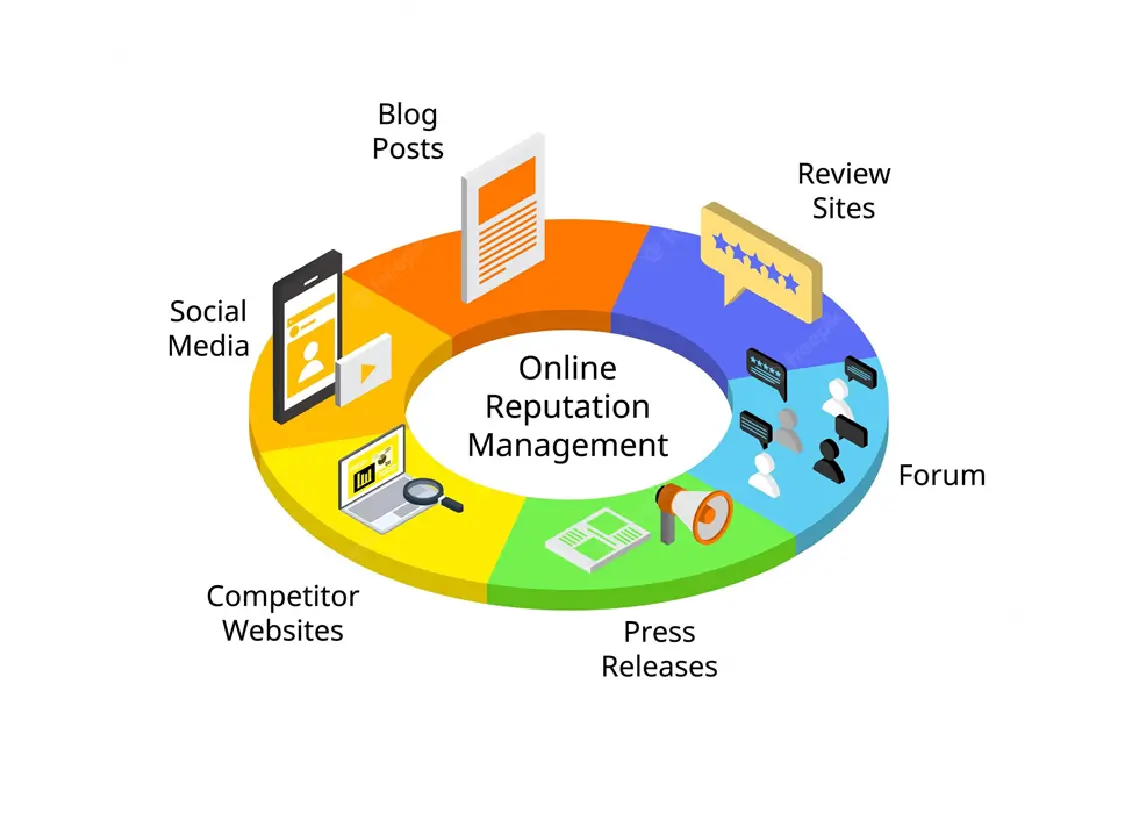Social media has become an integral part of our daily lives and it is no surprise that it has also become a major tool for reputation management. Reputation management by social media is a strategy used to help control, monitor, and manage the public’s perception of a brand, product, or service. This article will discuss what reputation management by social media is, the benefits, challenges, and strategies for effective reputation management by social media.
What is Reputation Management by Social Media?
Reputation management by social media is a process of monitoring, managing, and responding to the online conversations about an organization, its products, or services. It involves tracking online conversations about a brand, product, or service and responding to them in an appropriate manner. The goal of reputation management by social media is to ensure that the public’s perception of a brand, product, or service is positive and accurate. It is also used to protect the brand from any negative publicity or false claims.
Reputation management by social media is a growing trend as more and more businesses are turning to social media to reach out to their target audience. It is important for businesses to have a clear reputation management strategy in place to ensure that their brand is protected and that their reputation is positive.
Benefits of Reputation Management by Social Media
There are many benefits to reputation management by social media. It helps to increase brand awareness and credibility, build trust with customers, and improve customer relationships. It also helps to protect a brand from negative publicity and false claims, as well as increase visibility and reach.
Reputation management by social media is also an effective way to engage with customers and build relationships. By responding to customer queries and complaints quickly, businesses can show that they care about their customers and their feedback. This helps to build trust and loyalty, and can lead to increased sales and customer retention.
Moreover, reputation management by social media can help to protect a brand from its competitors. By monitoring conversations about the brand, businesses can quickly identify and address any negative claims or false statements made by competitors. This helps to protect the brand from negative publicity and ensures that the public’s perception of the brand remains positive.
Challenges of Reputation Management by Social Media
Despite the numerous benefits of reputation management by social media, there are some challenges that businesses must consider. The first challenge is that it can be difficult to monitor all of the conversations about a brand. This is especially true for businesses with a large presence on social media, as the volume of conversations can be overwhelming.
Another challenge is that it can be difficult to respond to all conversations in a timely manner. It is important to respond quickly to customer queries and complaints, but this can be difficult to do when managing multiple social media accounts. Additionally, it can be difficult to monitor conversations in real-time and to address any negative claims or false statements quickly.
Finally, reputation management by social media is a time-consuming process. It requires a lot of time and effort to monitor conversations and respond appropriately. This can be a challenge for businesses that do not have the resources to dedicate to this task.
Reputation Management by Social Media Strategy
In order to succeed with reputation management by social media, it is important to have a clear strategy in place. The first step is to identify your target audience and monitor any conversations about your brand, product, or service. This can be done by setting up alerts for keywords related to your brand and monitoring online conversations.
Once you have identified the conversations about your brand, it is important to respond quickly and appropriately. This means responding to customer queries and complaints in a timely manner and addressing any negative claims or false statements quickly.
It is also important to create a plan of action for responding to conversations about your brand. This plan should include how you will respond to customer queries, how you will address any negative claims or false statements, and how you will engage with customers.
Creating Your Reputation Management by Social Media Plan
Creating a reputation management by social media plan is essential for success. The first step is to identify your objectives. What do you want to achieve with reputation management by social media? Is it to increase brand awareness, build trust with customers, or protect the brand from negative publicity?
Once you have identified your objectives, you can create a plan of action. This plan should include how you will monitor conversations about your brand, how you will respond to customer queries, and how you will address any negative claims or false statements. It is also important to set up alerts for keywords related to your brand so that you can monitor conversations in real-time.
Finally, it is important to set up a system for tracking and measuring your progress. This will help you to see what is working and what needs to be improved.
Reputation Management by Social Media Tips
There are several tips to help you succeed with reputation management by social media. The first tip is to be proactive. Monitor conversations about your brand, product, or service and respond quickly and appropriately. This will help to ensure that the public’s perception of your brand remains positive.
It is also important to be honest and transparent. Respond to customer queries and address any negative claims or false statements truthfully. This will help to build trust with customers and ensure that your reputation remains positive.
Finally, it is important to be consistent. Monitor conversations about your brand daily and respond quickly and appropriately. This will help to ensure that your reputation remains positive and that customers trust your brand.
The Best Social Media Platforms for Reputation Management – Twitter, Facebook, and Instagram
Twitter, Facebook, and Instagram are the best social media platforms for reputation management. Twitter is a great platform for monitoring conversations about a brand in real-time. It is also a great platform for responding to customer queries and addressing any negative claims or false statements quickly.
Facebook is also a great platform for reputation management. It is a great way to engage with customers and build relationships. Additionally, it is a great platform for responding to customer queries and addressing any negative claims or false statements.
Finally, Instagram is a great platform for monitoring conversations about a brand. It is also a great platform for engaging with customers and building relationships. Additionally, it is a great platform for responding to customer queries and addressing any negative claims or false statements.
Courses for Reputation Management by Social Media
There are many courses available to help businesses succeed with reputation management by social media. These courses can provide businesses with guidance on how to monitor conversations about their brand, how to respond to customer queries, and how to address any negative claims or false statements.
The courses can also provide guidance on how to create a reputation management by social media plan and how to track and measure progress. Additionally, the courses can provide guidance on how to use the best social media platforms for reputation management – Twitter, Facebook, and Instagram.
Reputation Management by Social Media Services
There are many services available to help businesses succeed with reputation management by social media. These services can provide businesses with assistance in monitoring conversations about their brand, responding to customer queries, and addressing any negative claims or false statements.
The services can also provide assistance in creating a reputation management by social media plan and tracking and measuring progress. Additionally, the services can provide assistance in using the best social media platforms for reputation management – Twitter, Facebook, and Instagram.
Conclusion
Reputation management by social media is a growing trend as more and more businesses are turning to social media to reach out to their target audience. It is important for businesses to have a clear reputation management strategy in place to ensure that their brand is protected and that their reputation is positive.
The benefits of reputation management by social media include increased brand awareness and credibility, building trust with customers, and improved customer relationships. However, there are some challenges that businesses must consider, such as difficulty in monitoring conversations and responding to them in a timely manner.
In order to succeed with reputation management by social media, it is important to have a clear strategy and plan in place. Additionally, there are many courses and services available to help businesses succeed with reputation management by social media. By following these tips and strategies, businesses can ensure that their reputation remains positive and that their brand is protected.




